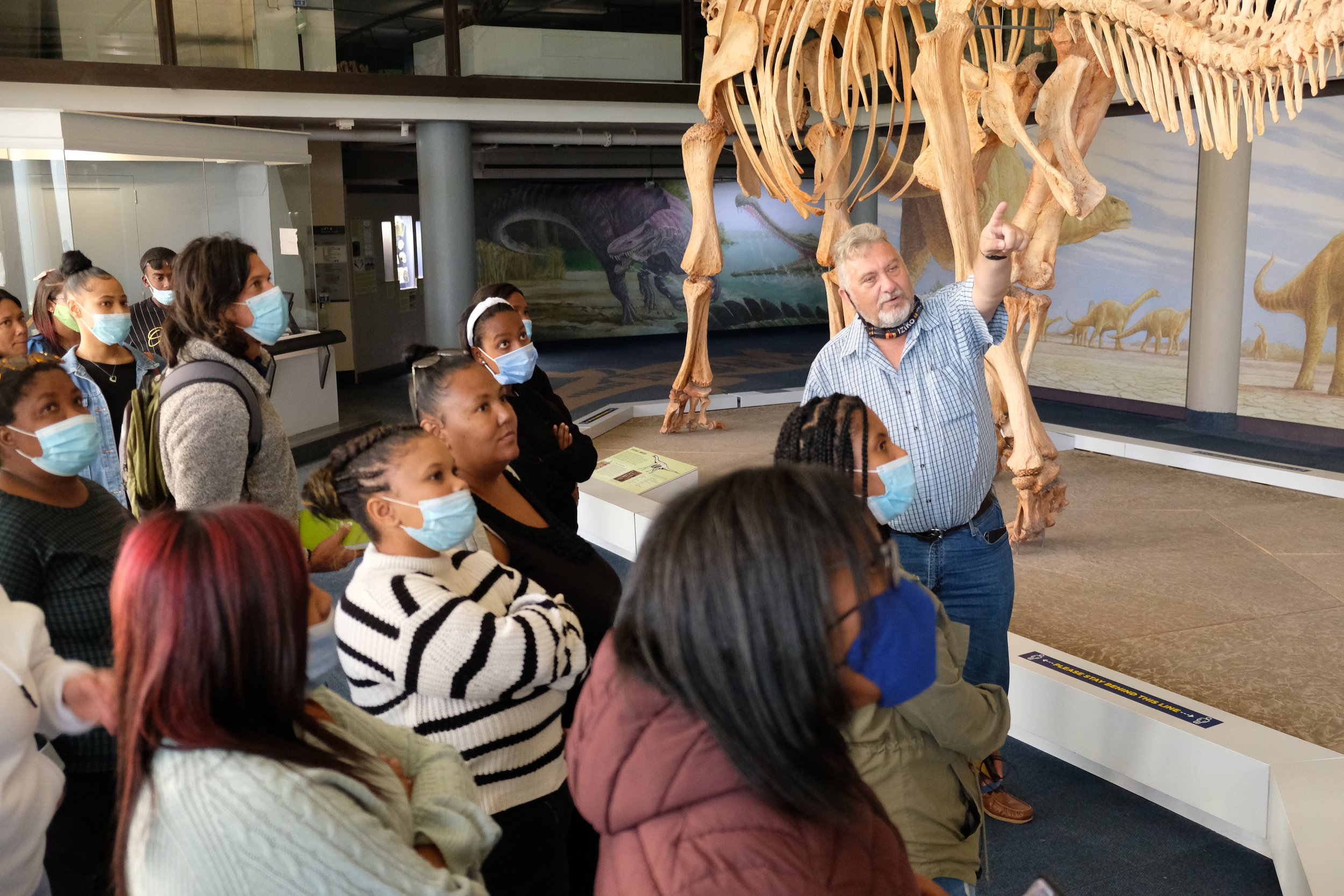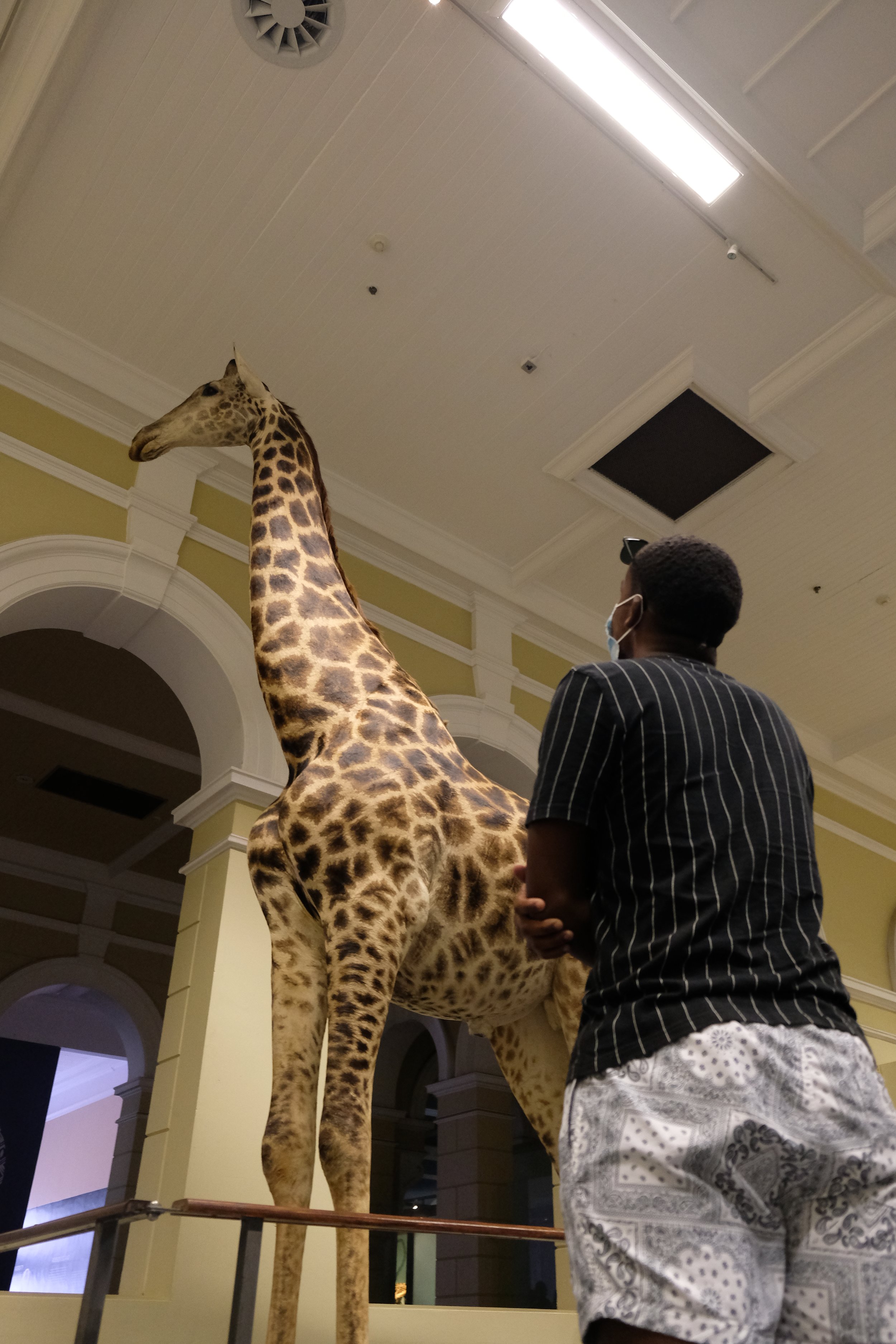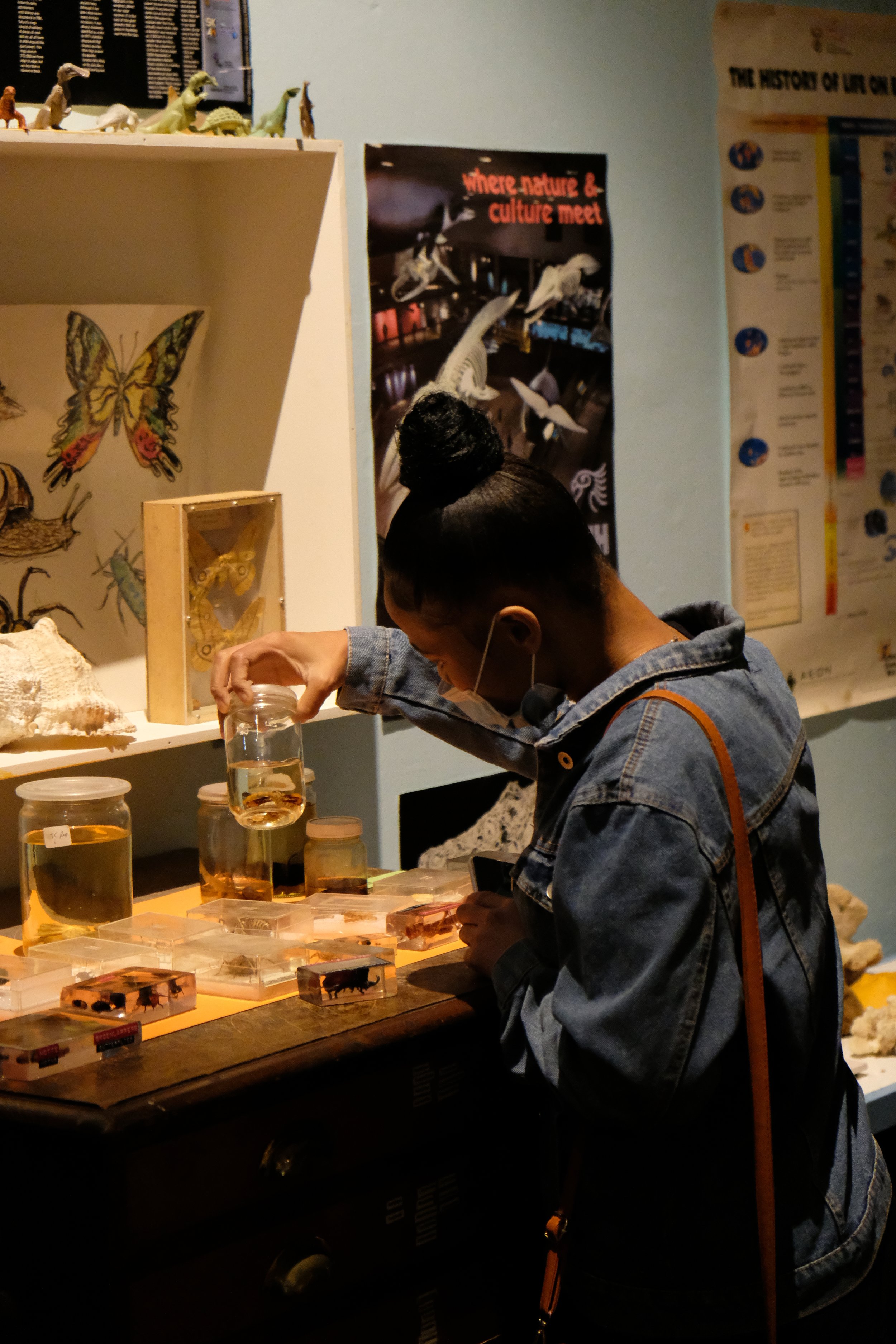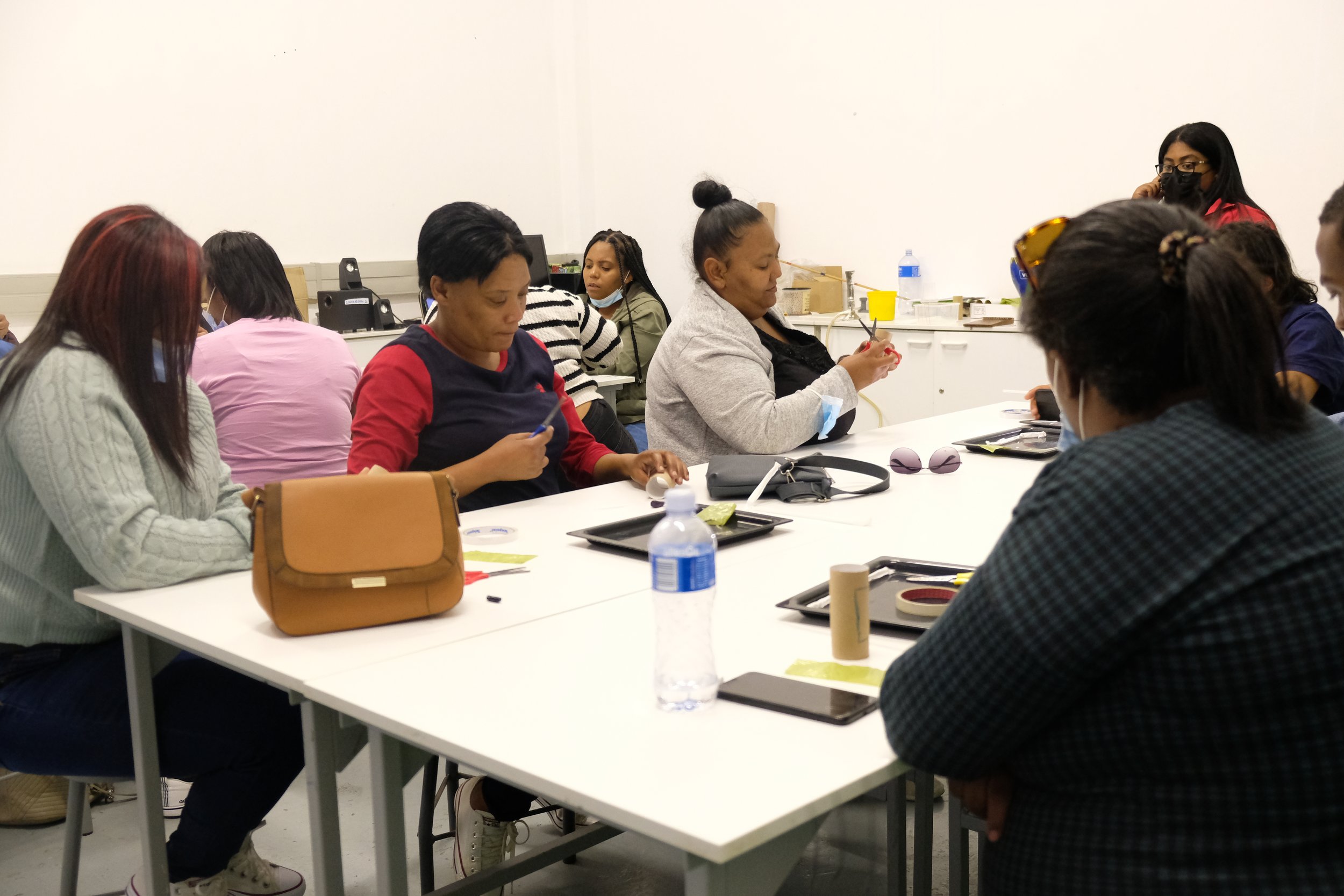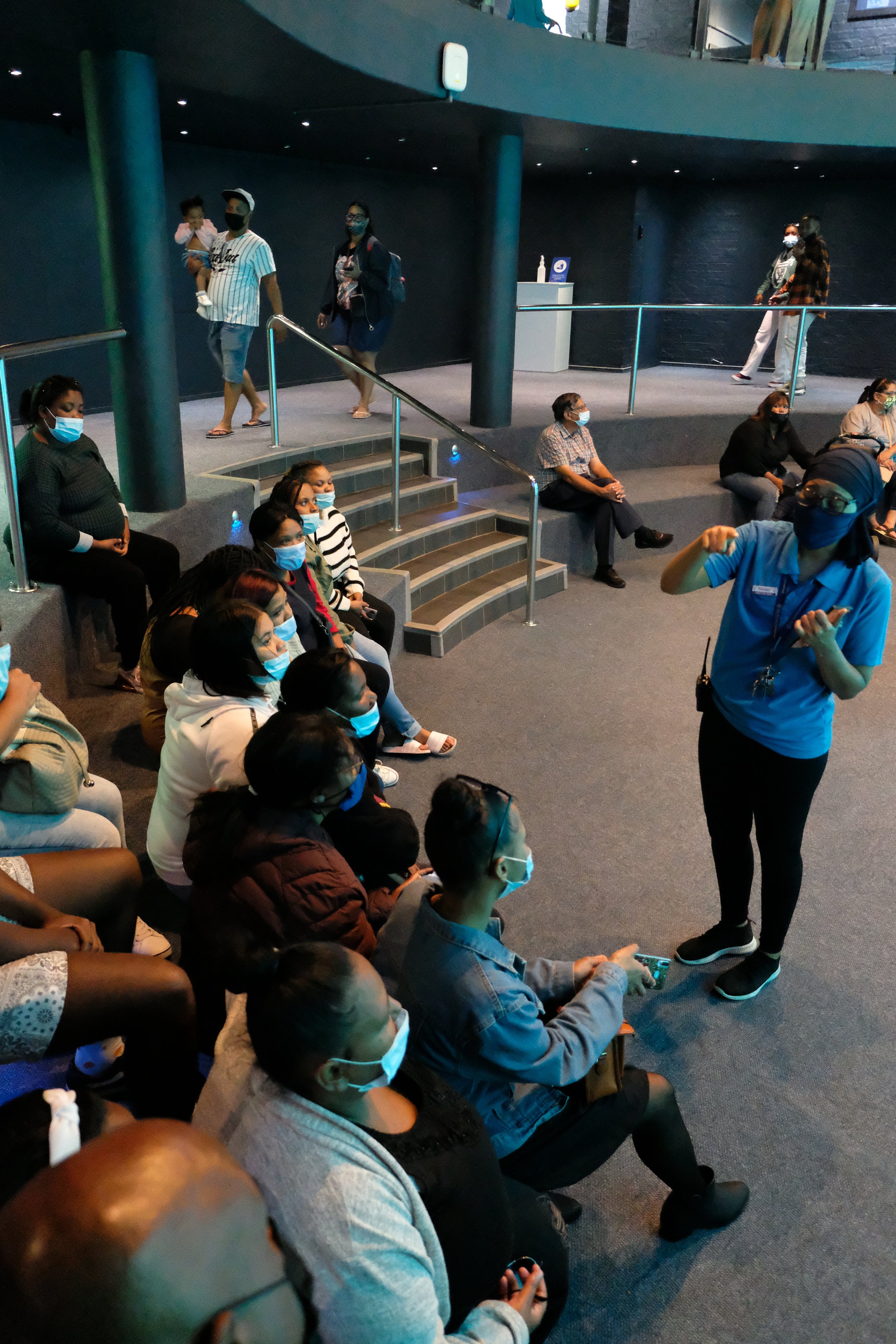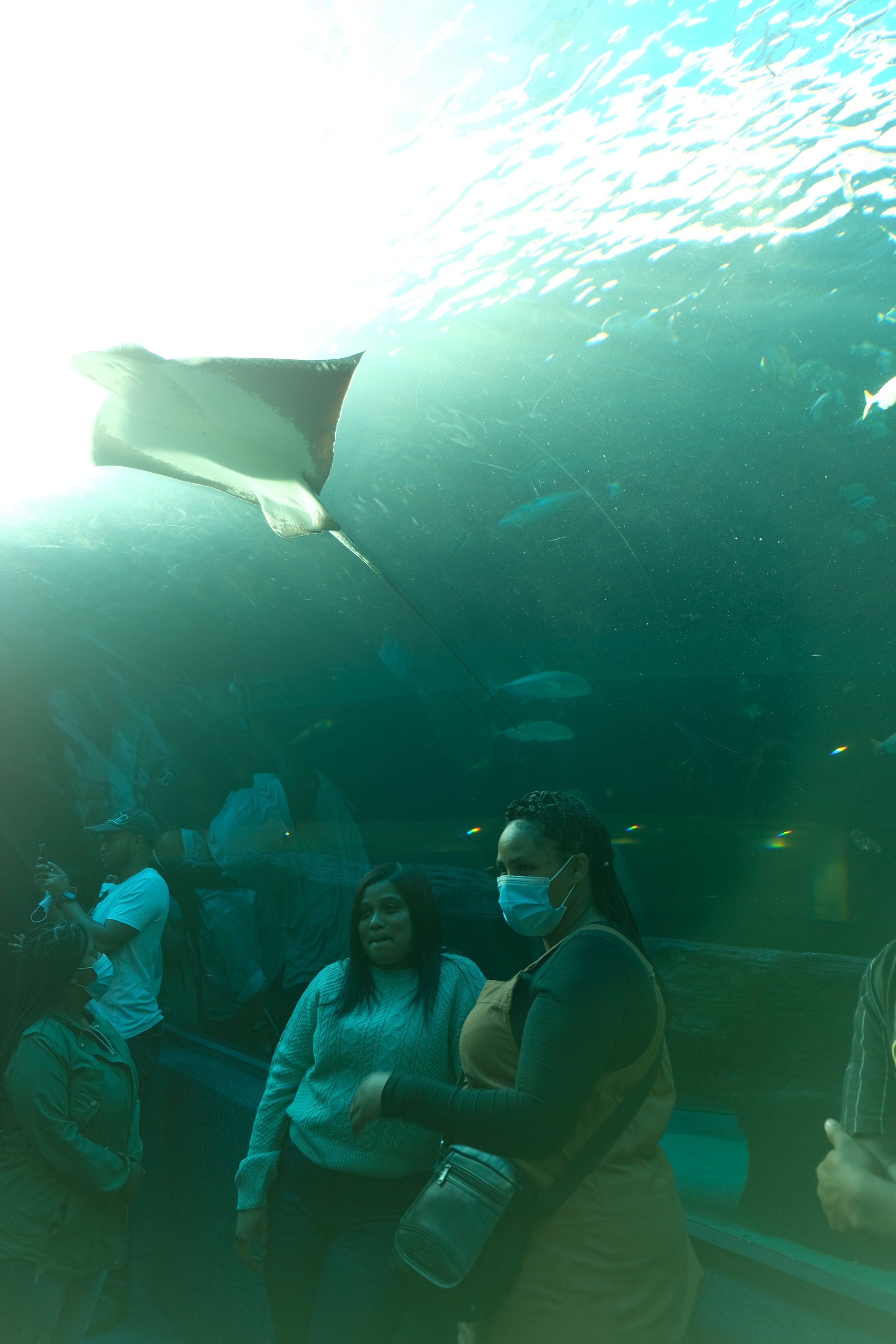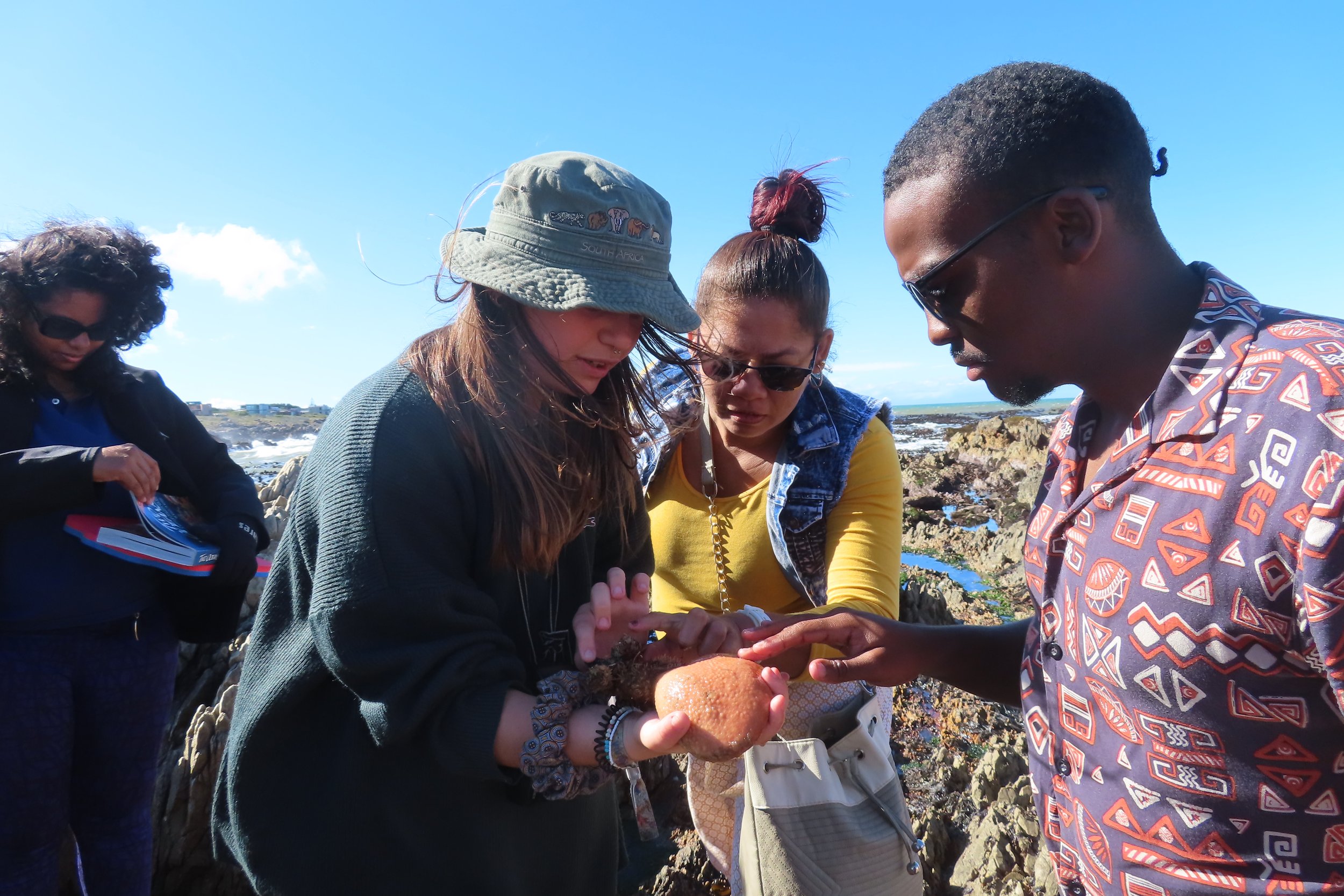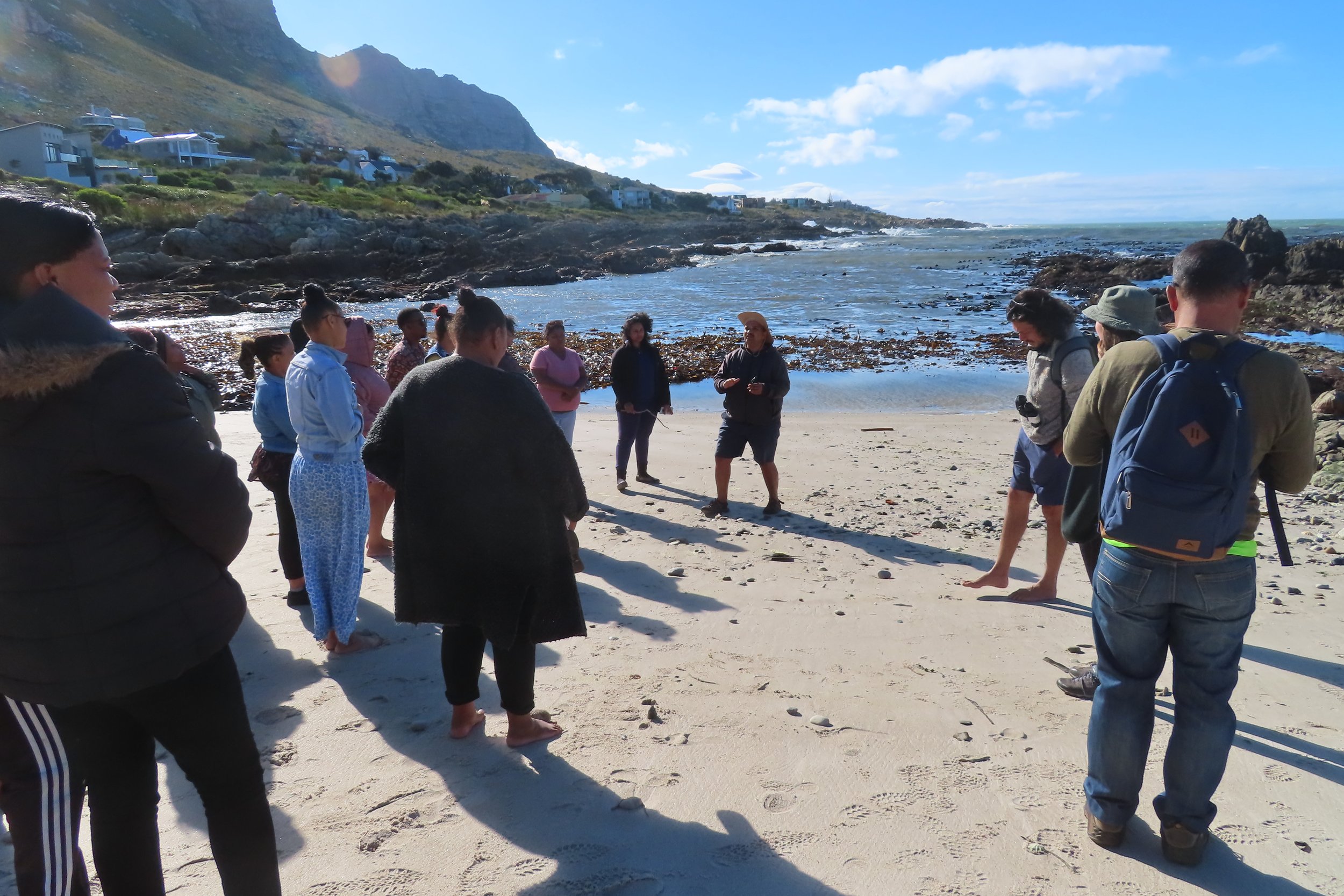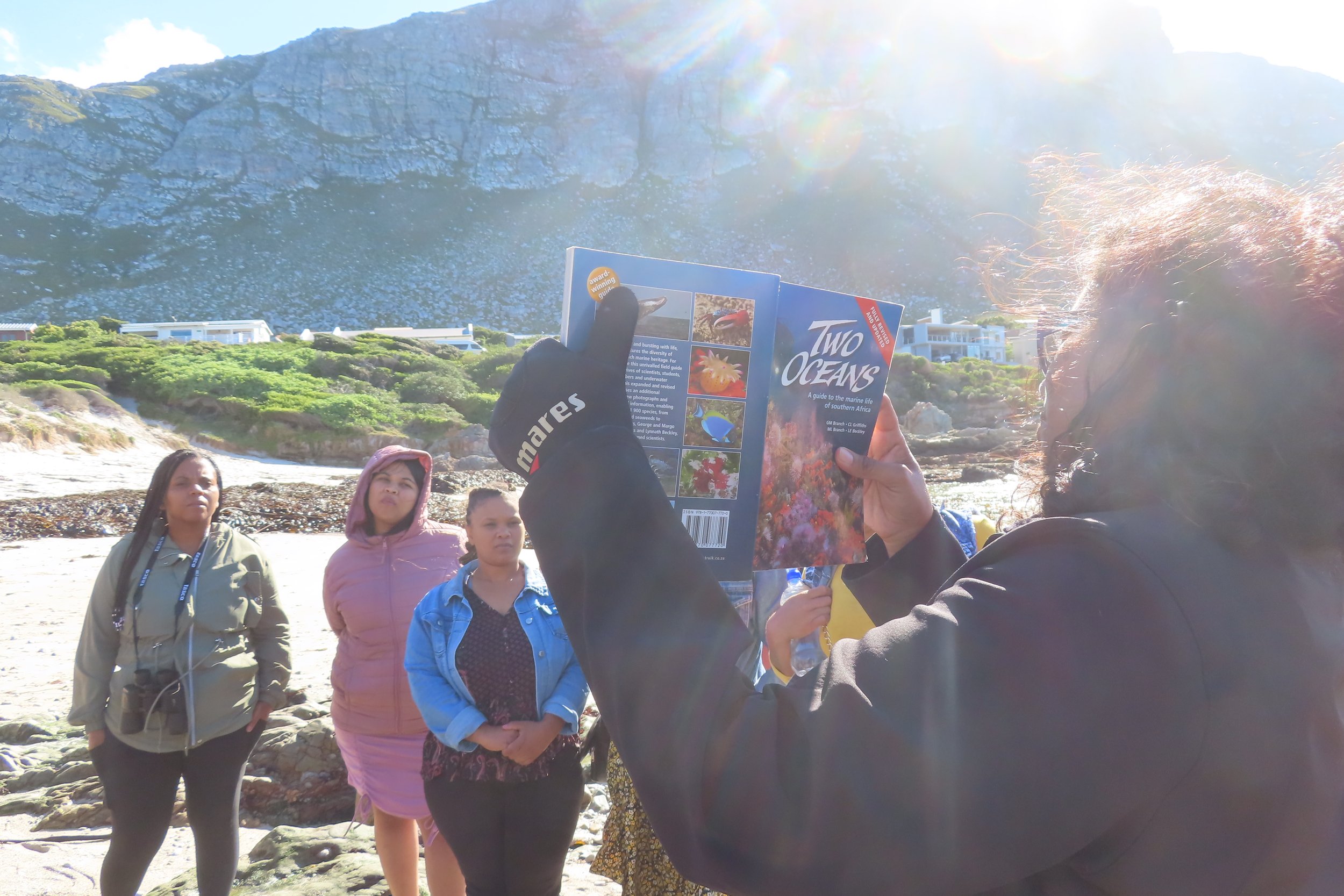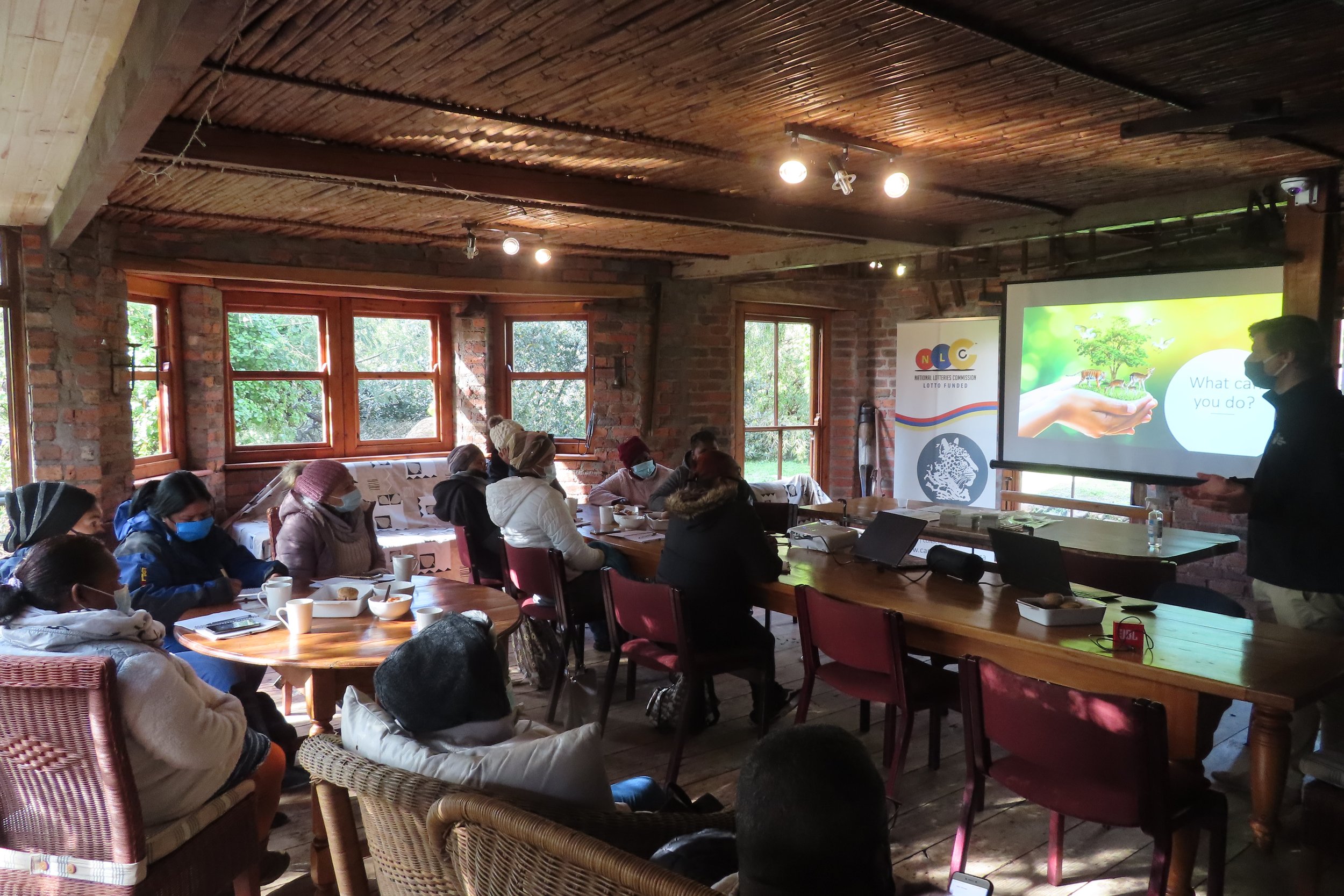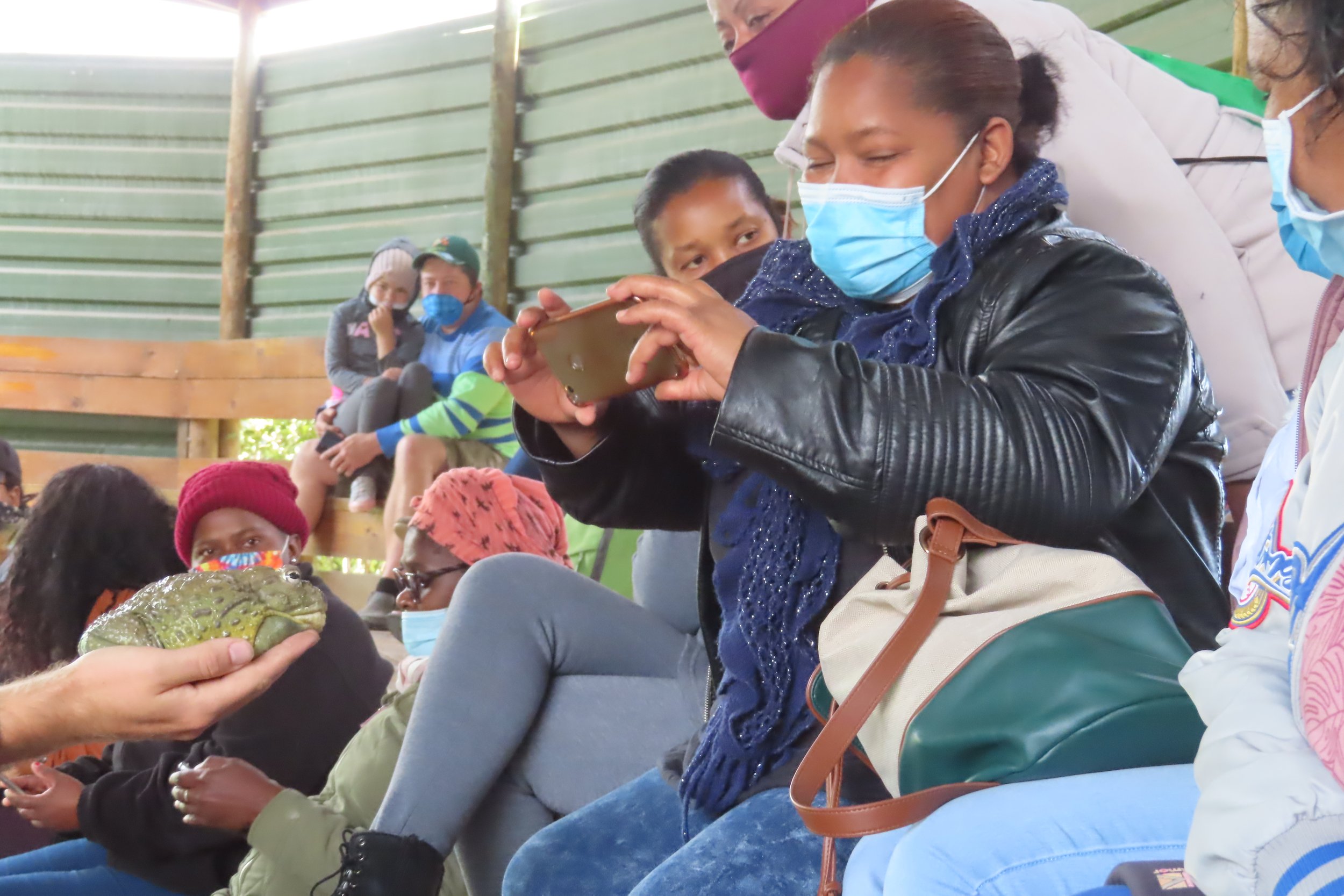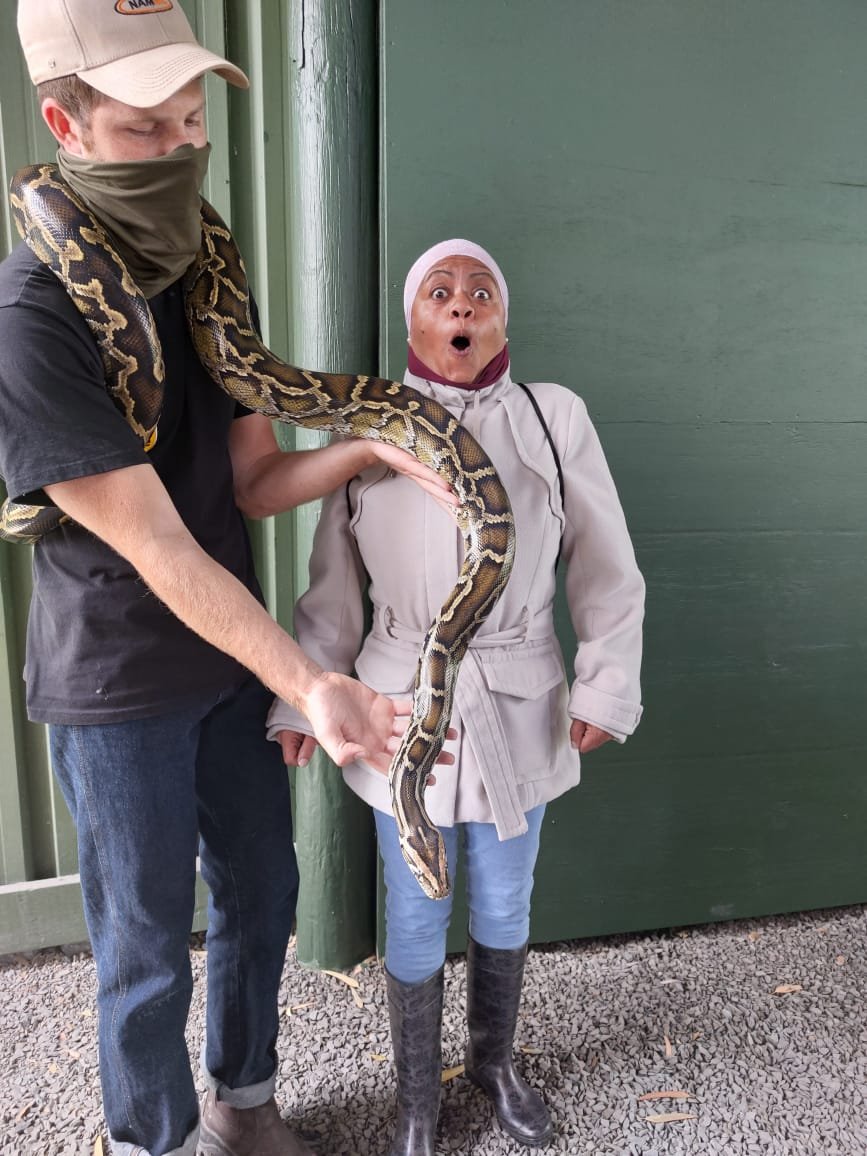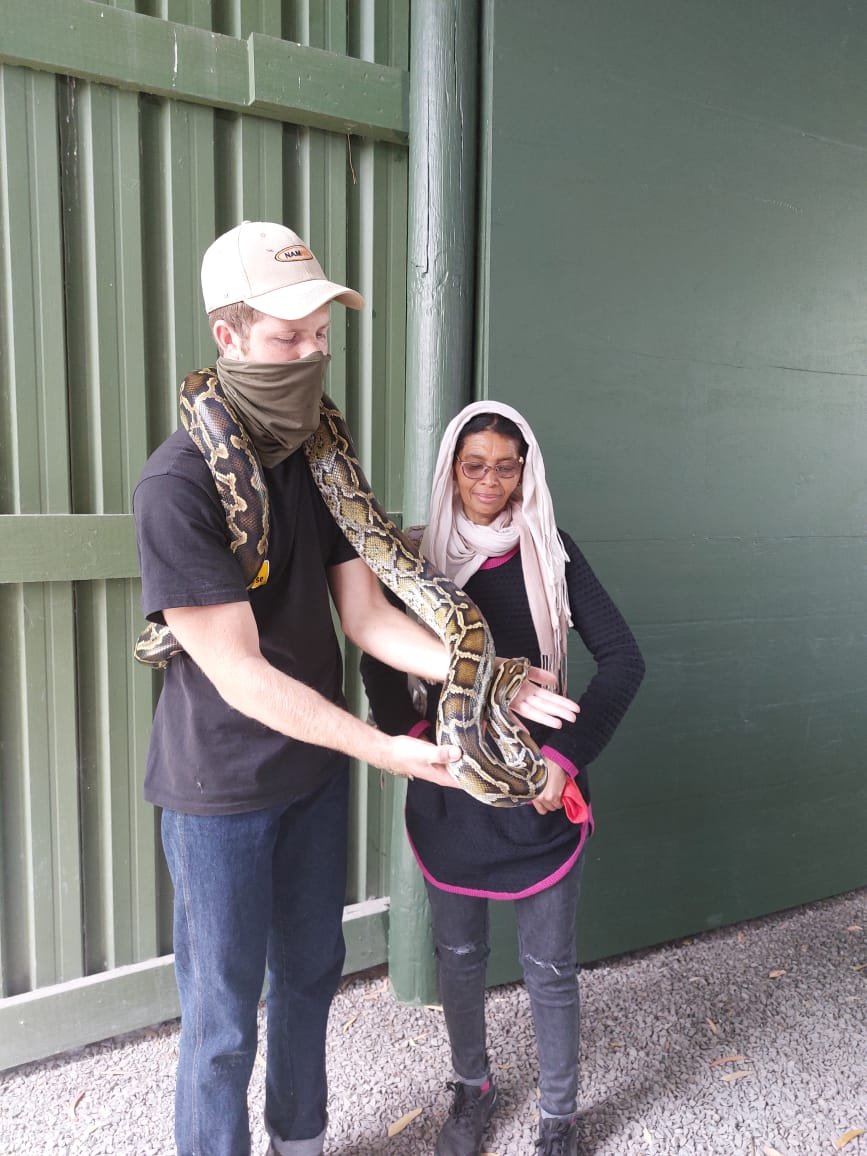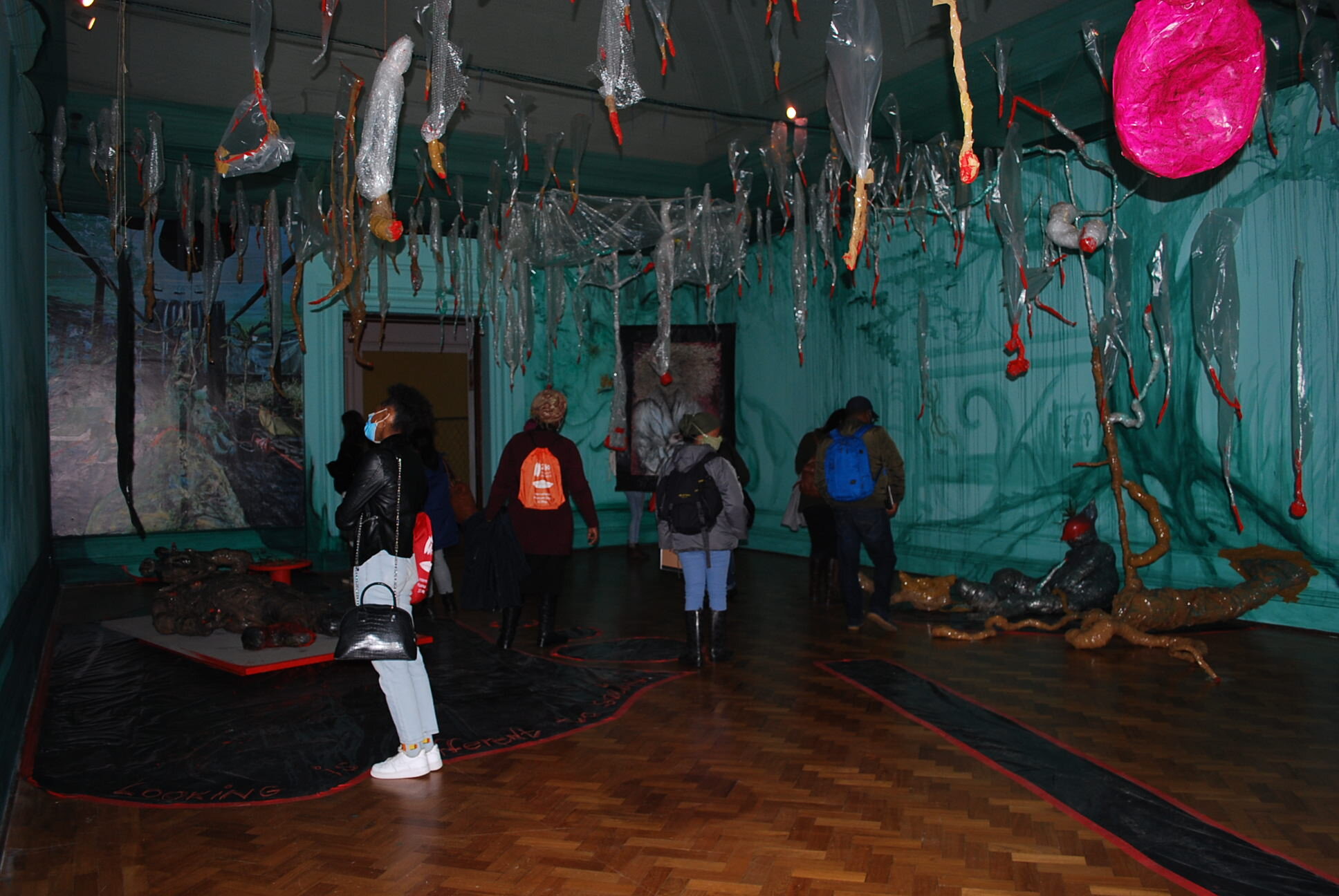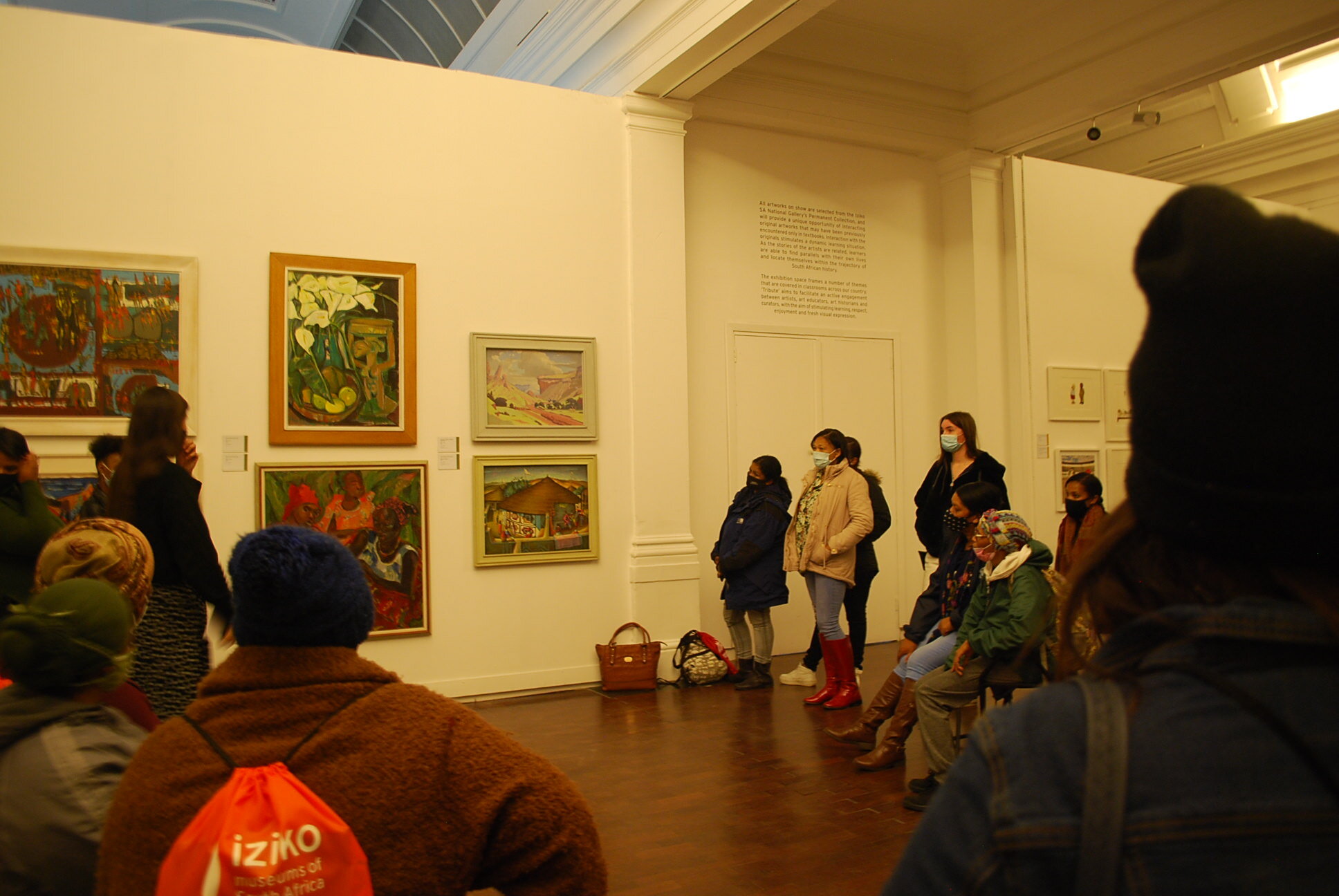The classroom can be a safe space for curiosity, investigative learning through play, and building confidence in a child.
In the last year, the CWBR team discovered the need for preschool teachers to have a similar experience, especially after a very difficult couple of years due to Covid-19. The need to come together and have exposure through different shared activities, igniting their own inquisitiveness as well as gaining access to resources to take back to their classrooms and share with the children.
The Bonnie People Project, based in Bonnievale, asked the CWBR team to share the opportunity of the teach-the-teacher outings and to host a group from Bonnievale in April 2022. The outings were originally offered to early childhood development (ECD) teachers in Franschhoek as part of a development programme in 2021. The Franschhoek teachers were given the opportunity to attend monthly outings to educational institutions and pristine areas in nature reserves to broaden their perspectives and gain insight into how and where to obtain educational resources, tools, and services.
The impact of the outings so far has not only had a positive impact at the ECD Centres but in their personal development and immediate families as well.
The monthly teach-the-teacher outings inspired a packed weekend programme for the ECD teachers based in Bonnievale.
The Bonnievale ECD Teachers Weekend
Thirteen nervous but excited Early Childhood Development teachers arrived in Franschhoek on a late Friday afternoon, ready for the weekend’s activities. A traditional South African braai and live music set the mood for the weekend.
After dinner, the teachers were split into two teams and played games to encourage team spirit, with lots of small prizes won by all. The games, which could also be used in their classrooms, involved balance, coordination, and speed! Balancing as many apples as possible on a plate, as many cookies as possible on the forehead, picking up macaroni with a piece of spaghetti held between your teeth, putting together a puzzle, and many more.
On Saturday the group set off to Cape Town. First on the programme was Iziko South African Museum, and a show at the Planetarium. The screening was followed by a guided tour of the museum’s exhibitions and then a visit to the popular Discovery Room filled with tactile experiences and encouraged exploration through sensory learning. The group also explored the Company’s Gardens before venturing to Cape Town Science Centre, where they took part in two workshops that included making instruments from recycled materials and an introduction to the Lego activity, Six Bricks. The teachers were treated to a Science Show and the Camera Obscura experience as well as exploring the exhibitions open to the general public.
Before heading back to Franschhoek, the group made a last stop at the Two Oceans Aquarium and went on a guided tour facilitated by a Marine Biologist, exploring ocean systems and life below the water. This activity gave them an insight into their rocky shore outing to be held on the Sunday.
Upon returning to Franschhoek, the day ended with a common kid’s favourite, Spaghetti Bolognaise, and a quiz on the day’s activities. Each teacher received a goodie bag which included a cooler bag, a set of Six Bricks, a notebook, colourful pens, and an Afrikaans and English version of Footprints in the Fynbos (a book recently published by the Cape Leopard Trust).
Packed and ready to return to Bonnievale, on Sunday morning, the group headed off to Betty’s Bay where they were met by Marine Biologist Dr M Boonzaaier-Davids and Anton Fortuin, a biology teacher who runs an ocean program at the Centre for Conservation Education with youth from the Cape Town area. Together, the group explored the rocky shore were allowed to carefully touch and learn about the creatures that call it home. The teachers were encouraged to take their classes out on discovery journeys in Bonnievale, and that learning about the wonders of the environment does not only have to be at the beach.
Lunch was at Harold Porter Botanical Gardens and became a guarded affair as the CWBR facilitators had to keep a lookout for the opportunistic baboons. What an experience! After lunch the group explored the wonders and uses of South African indigenous flora.
Before heading back home, the teachers had a final meet and greet with another ocean inhabitant at the Stony Point Penguin Colony; the African penguin.
With such a packed programme, the teachers had a lot to digest, and feeling inspired by the activities they had taken part in over the weekend, they expressed that they were excited to share their experience and use what they had learned in their classrooms.
Bonnie People Project started in 2003 and will celebrate their 20 years next year. It was built-up from a 2-room building where all the children were accommodated.
Currently there are 3 ECD schools: Bonnie People with 117 children, Teletubbies with 50 children, and Kapteintjies with 83 children. The Bonnie People Project also has an aftercare program that runs from Monday to Thursday where extra attention is given to 30-40 children.
To find out more , check out the articles about the Franschhoek teachers outings and how NPO’s and organizations are investing resources in education.
Further reading
A New Outlook in the Classroom, published 28 May 2021
The ECD Legacy Project: Educational Outings Continued…, published 12 November 2021
Teacher Development Workshop: Sharing Environmental Education, published 23 July 2021


